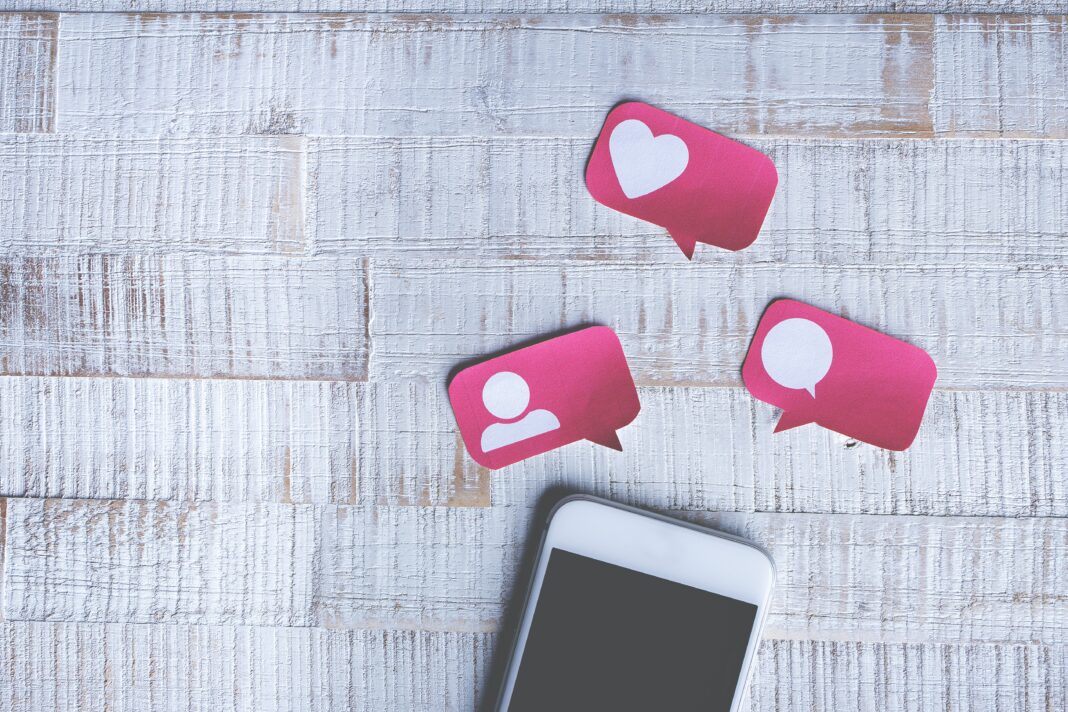I don’t know about anyone else, but I can’t remember what life was like before the pandemic. And when I am reminded, I can’t quite believe that was the life I lived! Commutes, work, gym, cooking/prepping food (finding lids to the Tupperware was a task in itself), plenty of mundane household chores and somehow having time for a very active social life – all held together by the anticipation of an upcoming holiday to a sunny destination, booked every few months to convince myself that I’m working to live and not living to work.
Whatever your routine, it all came to a grinding halt in March 2020. Although it has been extremely tough for countless and obvious reasons, there’s no denying that the world being forced to stop with a lockdown (well, the very first one at least) gave us the opportunity for much-needed rest; we had become accustomed to living a life that, in hindsight, was chaotic.
However, with all our daily lives transitioning from the outside world to the confinement of our homes, we’ve inevitably become more reliant on our screens. Going from working on a laptop to socialising through my phone and “winding down” in front of the TV, all alongside the general apprehension from the world turning on its head, was making me more tired than I should have been from doing so little.
What started off as a break from a hectic routine was now draining me and beginning to affect my mental health. So, I decided to reduce my screen time which, of course, social media apps were the main bulk of. “I’m going to deactivate them, just for a week” were my famous last words.
That week turned into a month; a month of rest, realignment and rejuvenation. It was because of this one month that I was able to read three books (when I couldn’t even read one in six) and that I was able to relaunch Speaker Newspaper only months later, a dream that I had been working on for five years.
This is how my social media break transformed my life.
Instant Benefits
The first thing I noticed almost immediately was the drastic improvement in the quality of my sleep. As someone who strongly believes that a good night’s sleep solves everything, this benefit alone was enough for me. I once listened to an episode of The Food Medic podcast, where she was joined by Kimberley Wilson, former finalist of The Great British Bake Off and a Chartered Psychologist specialising in Whole Body Mental Health. Kimberley said: “Sleep is absolutely crucial for good brain function to the point where I will tell my patients that we can’t start therapy before we sort your sleep issues first…There are so many comorbidities between sleep and mental health function, that I think it’s almost pointless to try to do therapy if someone isn’t sleeping properly.”
This stuck with me; I was fascinated by the link between sleep and the functioning of our mind and body. So I wasn’t surprised when sleeping like a baby set off a domino effect of positive outcomes for the duration of my no-social-media experience. I was waking up in the early hours of the morning with that energising, well-rested feeling instead of being enveloped in that awful grogginess that pins you down to the bed and makes you contemplate quitting your job. Early starts meant more time for productivity AND rest, easing that daunting pressure of choosing between burnout or an incomplete mission.
With no phone to seduce me, I was more focused on my tasks and completed them with perfection. I was present, not only in my job, working on the relaunch of Speaker Newspaper and other things that required a lot of my brain energy, but with all that was good for my soul; my loved ones, my prayers, my creativity and my books. Conversations with my friends were more meaningful, the negative voice in my head was a lot quieter and solitude felt like bliss as opposed to misery.
I was able to reach this tranquil state because my mind felt like it had been decluttered, making room for the calmness and clarity I needed to concentrate on important things. I can’t quite describe why this wasn’t possible before, except that my mind had just constantly felt full, scattered, restless and almost restricted. Now, I felt free!
All these factors had a noticeable effect on my mood and I was full to the brim with gratitude. I didn’t think I suffered from anxiety in my day-to-day life, but the absence of it during my break made me realise that I had without realising. All those podcasts I had previously listened to, the self-help books I had read and the psychological studies I had come across about the positive effects of good sleep, early mornings, prayer, gratefulness, reading and expressing your creativity were all FINALLY making sense to me.
Although there were many benefits, each one triggering the next, the reasons behind my improved mood went beyond good sleep and early morning productivity. It begged the question: why couldn’t I achieve these things whilst being active on social media? Why couldn’t it be as simple as putting my phone away for the evening, if all it took was a good night’s rest to make me accomplish great things?
Is Social Media Really That Bad?
As many of us saw in the recent Netflix documentary ‘The Social Dilemma’, social media apps are designed to be highly addictive and reel you in. The film explores many ways in which this has a huge effect on our lives and the world we live in, from deteriorating our mental health to influencing political campaigns.
Although the documentary didn’t teach me anything new, it did make me realise that none of us are safe from the world of social media. Regardless of the film’s dystopian feel, I felt slightly better knowing that we’re not solely to blame for our addiction. I didn’t realise just how much this addiction was costing us, though, until I got rid of it (albeit temporarily).
The streams of click-bait headlines on Facebook, scrolling through raw opinions on our Twitter feeds, aimlessly tapping on mind-numbing Instagram stories, What’s App chipping away at our focus with incessant notifications – it’s no wonder that by the time we get to bed, we’re unable to switch off the multiple tabs open in our heads and feel too anxious to sleep. Then we wake up feeling too shattered to function properly, and the toxic cycle continues.
Yet, as with most things toxic, we’re addicted to it.
Whether I love it or hate it, I have accepted that there is no living without it. Social media obviously does have its advantages. I love engaging with people, chuckling whilst sending memes to my friends and connecting with like-minded people through a tweet. It has educated me more about social and political matters than my degree in Journalism and Politics did! But most of all, I love the role it plays in bringing different parts of the world together to fight for change, last year’s Black Lives Matter movement being a recent example.
However, to reap these benefits without it taking over our lives, we must change how we consume it.
Five Tips on How to Use Social Media More Mindfully
1. Clear your feed and unfollow “influencers”
Have you ever put your phone down after closing an app, and felt a wave of dejection wash over you? But you just couldn’t put your finger on what you saw that made you feel like that?
You are what you eat. So just like consuming bad foods affects your physical health, consuming a toxic social media feed affects your mental and emotional health. No matter how well you’re doing in your life, this constant bombardment of aesthetically pleasing, highly edited posts of “influencers” living their best lives leaves you with a sense of inadequacy; a feeling that stems from comparing your life to theirs. And, as the negative vibes are mostly absorbed subconsciously, it’s harder to avoid. This leaves you with an inner void that can never be filled, for as long as you continue to expose yourself to this kind of content. As that lifestyle is not real, it is unattainable and impossible to reach, making us feel bad when we fail to do so.
“Influencers” are only seemingly thriving because of us. Take, for instance, the British Instagram influencer who not only flew to Dubai during a lockdown, but unapologetically appeared on This Morning to defend herself, telling viewers that it was an essential trip for her “mental health” and to “motivate” her followers – when we are the ones who feed their egos by continuously praising them for doing nothing of substance, is it any wonder that they’re this narcissistic? And can we really blame them for having the audacity to voice their problematic views with such confidence?
You’ll be surprised by how reviewing and tidying your following list will transform your social media experience. Go through each account that you follow and question: why do I follow them? How does this account make a difference to my life? What are they really “influencing” me to do? How do I feel after seeing a post from them on my feed?
If there are no positive answers and the account is not enhancing your life in even the smallest of ways…UNFOLLOW!
2. Post with intent
Just like we must follow with a purpose, we must also post with a purpose (because, you know, be the change you want to see in the world and all that). Before I deactivated my accounts, I had myself grown tired of mindlessly posting. We all do it.
When I re-activated my accounts, I made a vow to question WHY before hitting the post button. And I’m ashamed to say that more often than not, the reasons stemmed from ego or the need for validation. When we start posting with reason, we become less reliable on the online world for a quick and short-lived confidence boost and start benefiting from it in a more purposeful way. Unless the post is doing something valuable for your followers, apart from cluttering their minds and unnecessarily taking up their mental space, maybe you should reconsider sharing it.
3. Airplane mode is not just for flights
I wonder how many of us really put our phones out of sight or on silent when we’re doing something that requires our full attention and not fragments of it? I don’t just mean when we have an important task to do at work or switching on the “Do Not Disturb” function when we go to sleep. I mean when we’re resting with a book, watching a movie with family or eating with our friends at a restaurant (people being on their phones at a restaurant will never not rile me up, by the way – when and how did this become acceptable?!)
If we want to use our phones mindfully without leaving the social media sphere altogether, make airplane mode your best friend and change the notification settings for all your social media apps. Doing distraction-free deep work, taking undisturbed breathers and spending uninterrupted time with your loved ones will improve your quality of life.
These moments are precious – don’t let a device take them away from you.
4. Replace the time you spend on social media with contributing to your growth
Yes, this is easier said than done. But creating a consistent habit to last is always a struggle to begin with. I think the biggest danger is how “let me just have a quick Twitter scroll” turns into “I just missed the whole movie” – it isn’t so much that our phones take up a lot of our time, it’s that they do so without us realising.
Now, imagine spending that time on doing something fun to develop your skills, channel all that pent-up creativity or just recharge your batteries, instead of letting those hours vanish into thin air? Learn a language, get started on that inventive project you’ve been putting off or just take a long bath – do all the things that you “just can’t find the time” to do.
Before my break, relaunching Speaker Newspaper and finishing even ONE book (never mind three) seemed like an impossible task. After using the break to build good habits, one thing that has really helped me with completing those apparently unachievable tasks, even after re-entering the social media world, is breaking them down and setting myself 20-minute intervals.
If I discipline myself for JUST 20 minutes, I create a win-win situation for myself. Getting SOMETHING done in a short time is better than doing absolutely nothing but also, airplane mode gets me in the zone, so I usually end up doing way more. Either way, I get to enjoy that feeling of reaching or smashing a target. Do this consistently and your progress after even just a few days will shock you.
You will no longer need those short-lived boosts of validation from your online friends after spending time actually BECOMING the best version of yourself, instead of trying to convince the world that you are. Because nothing compares to the feeling of working on yourself, whether it’s through rest, creativity or developing your strengths.
5. Check up on your friends – especially if they seem “fine” on social media
This is one I really can’t stress enough. I’m all for social media being a great tool for connecting and engaging with people. But not for it being used as an accurate and complete reflection of your friends’ lives and mental health, replacing open and meaningful conversations.
When I decided to extend my break from a week to a month, people started to notice that I had gone “missing”. In week two, I’d had between 10-15 people reach out to me within the space of two days. Some just wanted to check up on me out of “concern”, some just “felt” like they hadn’t heard from me in a while and missed me, and others just wanted to outright ask why I had “disappeared” from social media.
I felt blessed; at least people would be concerned enough to go looking for me if I were to actually go missing one day. But this was quickly followed by a lot of mixed feelings. All I did was deactivate two apps! Why did such an insignificant action even get noticed? Why did it spark so much concern? And why did it take for me to stop showcasing my life for people to check up on me?
We are not entirely to blame. It’s scary how we are so consumed by social media that we think we have a complete picture of everybody’s lives, from the mere snippets of it posted on the internet. But familiarity breeds contempt, and in this case, gives us a false sense of entitlement – entitlement to judge how our friends are doing, decide if they’re available or not, and let even strangers’ trivial actions become the topic of our shallow discussions. These are all the things I was free from on my break.
Drop your friend a text instead of DM’ing them a meme. Give them a phone call when you think of them, instead of taking a quick peak at their Instagram to see what they’re up to. Ask them how they REALLY are, await their answer with anticipation and listen with intent, regardless of whether their social media already told you the full story.
Conclusion
There is absolutely no room for debate when it comes to the toxicity of social media. But the bigger danger is how unconscious we are of it. Taking a step away from the noise has opened my eyes to not only the world but my inner self. Social media is making us lazy, anxious and sleep-deprived. So, start weaning yourselves off your phone. Free yourself from being a prisoner to your devices!
Lockdown is the perfect time to do this because nobody is up to anything, so there is no FOMO! I challenge you to do what I did, just for 24 hours – you won’t look back.












